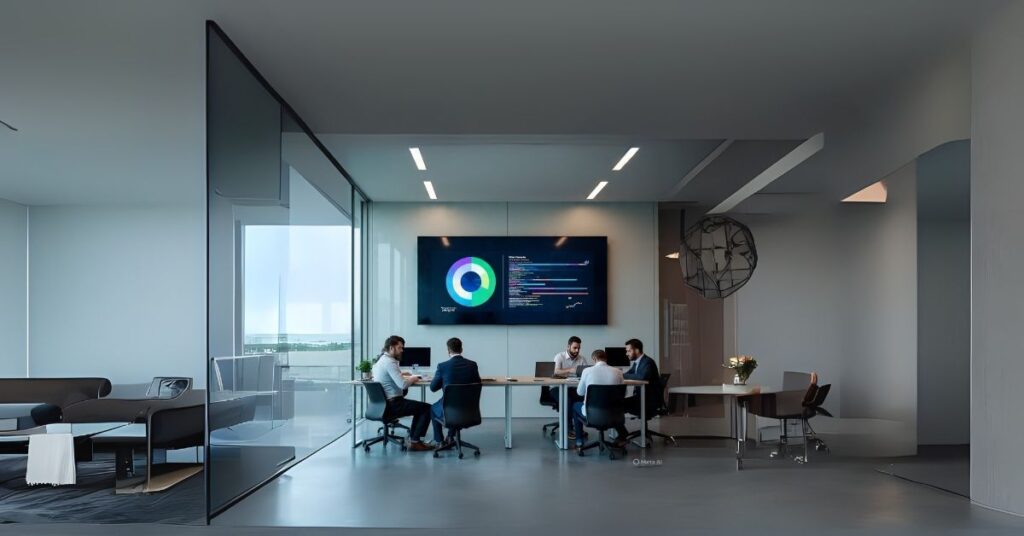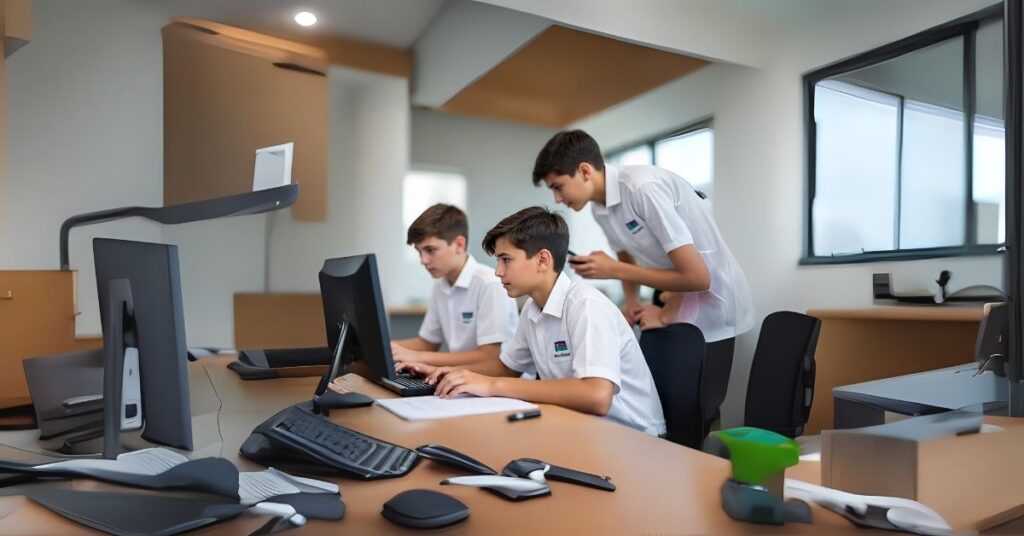Many people use the phrase “you’re welcome” every day. It’s polite, but it can get boring or feel too formal. That’s why learning other ways to say “you’re welcome” can help you sound more natural and friendly. These expressions work in casual chats, emails, or even business meetings. Using other ways to say “you’re welcome” makes your reply feel more personal and thoughtful.
In the U.S., we often change our words based on the setting. That’s why having many ways to respond helps. This guide will show you the best other ways to say “you’re welcome” in real-life situations. You’ll sound confident, polite, and easy to talk to.
Alternatives to “You’re Welcome”
The phrase “you’re welcome” is part of good manners, but repeating the same response every time can feel too standard. That’s where alternatives come in. These expressions add variety, warmth, and tone depending on who you’re speaking to. Using different replies shows emotional awareness and helps keep conversations friendly and fresh. It also reflects your comfort with language, both spoken and written.
In social situations, polite replies like these help build mutual respect. Whether you’re at work, talking to friends, or replying to a message, the goal is to sound both natural and thoughtful. A quick change in wording can change how the whole conversation feels. Many of these phrases are part of English communication, especially in American culture.
also reaide: 10 Other Ways to Say “Biweekly”
My Pleasure

Saying “my pleasure” sounds warm and professional. It’s often used in settings like customer service or formal business talks. It tells the other person that you were truly happy to help. This simple phrase adds a polite tone to your reply, especially when you’re aiming to sound gracious. It’s often heard in hotels, restaurants, and even in professional emails.
Unlike “no problem,” this phrase doesn’t make it about the task being easy or hard—it centers the gratitude. That’s why it works well in both business and hospitality settings. Using “my pleasure” shows respect, makes the tone more formal, and leaves a lasting impression.
No Problem or No Worries
These are common replies in everyday casual conversation. When someone says “thank you,” and you reply with “no problem” or “no worries,” you sound friendly and relaxed. These phrases are perfect for daily interactions with friends, coworkers, or anyone in an informal setting.
They reflect an easygoing attitude and are popular across American culture. However, in very formal or official environments, these responses may seem too relaxed. That’s why it’s important to match your reply with the tone and setting of the conversation.
Anytime or Always
“Anytime” and “always” both suggest you’re open to helping again in the future. These phrases go beyond just being polite; they show support and a genuine willingness to assist. They work best when talking to someone you know well or when you want to express a strong sense of friendliness.
They are often used in personal or warm interactions. Using these phrases adds comfort to your reply, and they come off as sincere and kind. It also shows you value the relationship and are happy to help when needed.
Glad to Help
This reply is perfect for both informal and professional situations. It says you were not only willing to help but happy about it. In a workplace setting, “glad to help” sounds respectful and clear. In a personal chat, it adds a friendly and helpful tone.
It reflects politeness, clear communication, and a positive attitude. It’s a common way to respond in emails, support messages, or even face-to-face conversations. This phrase shows appreciation, yet keeps the conversation smooth and comfortable.
It Was Nothing
“It was nothing” makes your act seem small, even if it helped a lot. It shows humility and takes the attention off yourself. This phrase works well when you want to stay low-key and avoid sounding like you did something big.
It is part of standard informal talk and fits in with conversations among friends or even strangers. Saying “it was nothing” keeps things light and easy while still acknowledging the person’s thanks.
Think Nothing of It

This phrase is old-fashioned but still charming. It gives off a polite, calm tone, and like “it was nothing,” it shifts focus away from the person who helped. That kind of expression is polite, soft-spoken, and often used to keep things easy between people.
It’s perfect in regional or traditional American interactions, especially among older generations or in small-town communities. Using this phrase can sound both kind and respectful, showing you don’t expect anything in return.
You Bet or Absolutely
Both of these replies are energetic and friendly. “You bet” is common in American conversational English and adds a cheerful tone. It shows you’re happy to respond and that the person can rely on you.
“Absolutely” gives a slightly more formal tone while still sounding confident. They both show positive emotion and work great in personal chats or workplace environments that are casual but professional.
Happy to Serve
This phrase is most often used in service roles or customer support. When someone says “thank you,” and you respond with “happy to serve,” you reflect both gratitude and professionalism. It shows you take pride in being helpful.
It’s commonly used in hospitality, retail, and business communication. This expression is also a polite way to build good relationships with customers or clients, adding a friendly but formal tone to your interactions.
Don’t Mention It
“Don’t mention it” is an old but classic reply that still feels sincere. It downplays your effort in a kind way. When you use this phrase, it gives a sense of comfort, as if helping was no big deal.
This reply fits well in both casual and semi-formal settings. It’s often used in traditional English communication, especially when you want to sound respectful without drawing too much attention to your help.
That’s What Friends Are For

If you’re speaking with someone close, this phrase is perfect. It reminds them that helping is just part of being friends. It’s casual, warm, and full of kindness.
This phrase adds a lot of emotion to your reply and deepens the connection. It’s not something you’d say in the workplace, but among friends, it really works. It’s about mutual support and appreciation in relationships.
Not At All
“Not at all” is another polite and clear reply. It sounds respectful, slightly formal, and neutral. It’s often used in professional or cross-cultural conversations because it fits so many situations.
This phrase is easy to use in business emails or formal settings, where being overly casual may not feel right. It reflects etiquette and good communication skills.
Happy to Assist
A favorite in the workplace and customer emails, “happy to assist” sounds professional and helpful. It’s polite, friendly, and expresses that you’re glad to help without sounding too casual.
It’s perfect for professional contexts, especially in customer service. The tone is warm but still formal enough to use in most work conversations or emails.
When to Use Different Responses
Not every situation is the same, and your reply should match the tone of the moment. Choosing the right response shows emotional intelligence and respect for the situation. You might use “no worries” with a friend, but switch to “happy to assist” in a business email. Here’s how to adapt your replies depending on the setting.
Personal Interactions
In personal settings, the tone should feel relaxed and warm. Phrases like “anytime,” “that’s what friends are for,” and “you bet” all feel natural when you’re talking to friends or family. These replies reflect emotion, comfort, and real connection. They make your conversation flow and sound genuine.
Professional Settings
In the workplace, polite and clear responses are key. You want to sound helpful without being too casual. Use “glad to help,” “happy to assist,” or “my pleasure” in emails or meetings. These phrases reflect professionalism, respect, and a solid communication style.
Casual Encounters
If you’re talking to someone you just met or having a quick exchange, phrases like “no problem,” “don’t mention it,” or “it was nothing” work well. They’re light, easy to say, and fit most informal conversations. Just keep your tone friendly and polite.
Cultural Sensitivity
In global settings or diverse environments, some replies might not work well. “No worries” or “you bet” might sound strange to someone from another culture. Stick with polite, neutral phrases like “my pleasure” or “not at all.” These keep the tone respectful and avoid confusion.
Digital Communications
When you’re replying online, tone is harder to hear. That’s why choosing the right words matters. Phrases like “happy to assist,” “glad to help,” or “you’re very welcome” are better in emails or customer chats. They sound professional, polite, and clear.
Official Events and Ceremonies
At formal events, everything should sound respectful. Use replies like “it was my pleasure” or “not at all.” These phrases reflect proper etiquette and make you sound composed and polite. You want your reply to match the importance of the event.
FAQs
Q: What is the most polite way to say “you’re welcome” in business?
A: “Happy to assist” or “my pleasure” are polite, professional responses.
Q: Is “no problem” okay to use at work?
A: It depends on the company culture, but “glad to help” or “not at all” may sound better in formal emails.
Q: What’s the best reply to use in a text with friends?
A: “Anytime,” “you bet,” or “no worries” are easy and friendly.
Q: Can I use “you bet” with customers?
A: It’s best in casual settings. For clients or formal chats, “happy to help” works better.
Q: What’s the safest response when I’m not sure of the formality?
A: Go with “my pleasure” or “not at all”—they’re respectful and safe in most situations.
Conclusion
Using other ways to say “you’re welcome” makes your conversations better. It helps you sound kind, polite, and friendly. You don’t have to say the same thing every time. These other ways to say “you’re welcome” fit many situations. Whether you talk to friends, coworkers, or strangers, changing your reply is a smart choice.
You must know different phrases to match each moment. Picking the right words shows respect and care. This list of other ways to say “you’re welcome” will help you. You must practice them to sound natural. Remember, using these phrases makes your speech warm and clear. So, try using other ways to say “you’re welcome” every day. It will make you stand out in a good way.

Grammerroot is your trusted source for mastering English grammar and language skills. From simple rules to advanced tips, we help learners build strong foundations through easy-to-understand content. Learn smart, learn right — only at Grammer Root.




